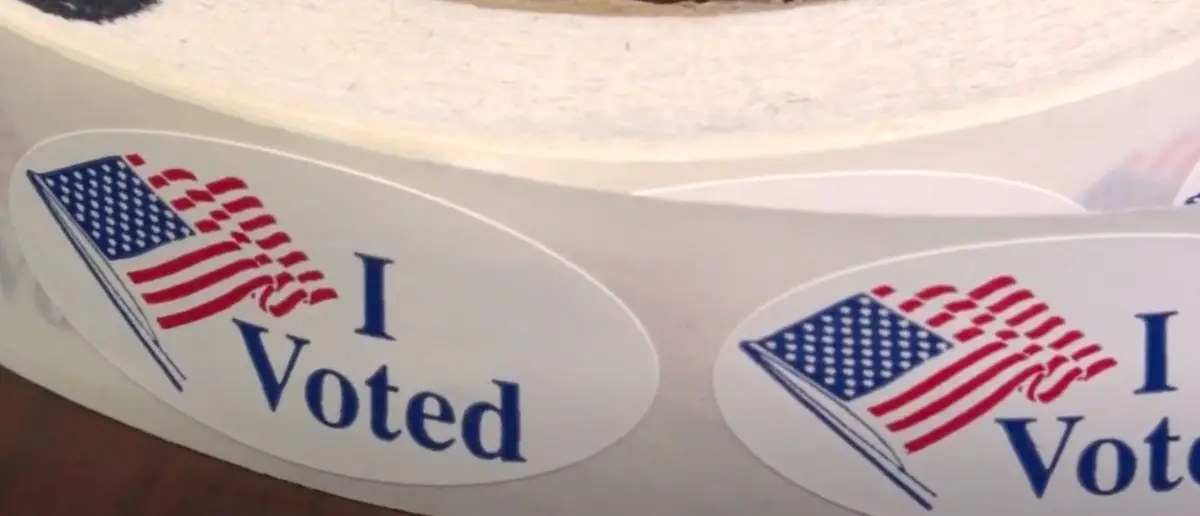
The Democrats keep sinking lower. There’s nothing they won’t do to get at Trump.
And now Democrats have gone rogue to pass a bill that would handcuff President Trump.
Democrats’ Radical Sanctuary Push Threatens to Sabotage Trump’s Border Security
Colorado Democrats are advancing a sweeping bill that Republican lawmakers warn will cement the state as a sanctuary haven, cost taxpayers millions, and provoke federal retaliation. The legislation, introduced in April, represents a dramatic escalation of progressive defiance against Donald Trump’s federal authority, prioritizing ideological purity over public safety and fiscal responsibility.
The bill’s provisions are a direct challenge to Immigration and Customs Enforcement (ICE) operations. It would bar sheriffs from honoring ICE detainers, limit public employees’ ability to share immigration data with federal authorities, and loosen identification requirements for in-state tuition and driver’s licenses. Additionally, it prohibits out-of-state National Guard units from operating in Colorado without explicit gubernatorial approval, a clause critics say is designed to thwart federal coordination on border security.
“It’s a complete expansion of a sanctuary state, and we keep getting lied to multiple times, over and over again,” Republican state Rep. Ron Weinberg told the Daily Caller News Foundation (DCNF), slamming Democrats who claim Colorado is not embracing sanctuary policies. His frustration echoes a growing sentiment among conservatives that the state’s leadership is deliberately misleading the public to downplay the bill’s radical scope.
The financial toll of the legislation is staggering. Colorado House Republicans estimate the state already spends over $544 million annually on services for illegal immigrants, covering public education, Medicaid, subsidized tuition, driver’s licenses, and legal defense. Weinberg argues the new bill piles on these costs while stripping law enforcement of critical tools to maintain public safety. “This bill literally puts the handcuffs on police officers who are trying to work with ICE,” he said, emphasizing the constraints it imposes on local cooperation with federal authorities.
Democratic sponsors, such as state Rep. Lorena García, defend the bill as a defense of “civil rights and constitutional rights.” Yet this rhetoric rings hollow for critics like Republican state Rep. Carlos Barron, a legal immigrant from Mexico who became a U.S. citizen in 2010. Barron sees the measure as a betrayal of those who navigated the legal immigration process. “This bill, 276, pretty much undermines the process that I went through,” Barron told the DCNF. “Making it to where the state is cemented more into a sanctuary state.”
🚨SB25-276 just passed.🚨
Colorado taxpayers already spend $544M a year on services for illegal immigrants — and this reckless bill will explode costs even higher. It incentivizes illegal immigration, raises fees without voter approval, and weakens public safety. Colorado can’t… pic.twitter.com/rL1bblnJHn— Colorado House Republicans (@COHouseGOP) April 29, 2025
Barron’s attempt to find middle ground—a compromise amendment redirecting a third of the bill’s spending to public education—was swiftly rejected by Democrats. He views this as evidence of the legislation’s ideological roots, accusing his colleagues of succumbing to “Trump derangement syndrome.” The bill’s supporters, he argues, are less interested in pragmatic governance than in scoring political points against the incoming administration.
The rhetoric from Democratic lawmakers has grown increasingly inflammatory. At a Colorado House Reference Committee hearing, García drew a shocking parallel between Trump-era deportations and the Holocaust. “We have been down this road before, committee. We have seen what happens when an authoritarian government decides to ignore the constitution,” she said. “And that resulted in the Holocaust. And to even pretend that there is anything different, then I encourage you to pick up a history book.”
Weinberg, who is Jewish and lost family members in the Holocaust, condemned García’s comparison as a grotesque distortion. “When you compare the Holocaust to the Trump administration securing our borders, it ultimately dilutes what actually happened, and what atrocities were committed to between 11 and 12 million people worldwide in the 1930s and ’40s,” he said. Such rhetoric, he argues, trivializes one of history’s darkest chapters while poisoning discourse around immigration policy.
Beyond its symbolic affront, the bill carries serious practical consequences. Barron warns it could jeopardize federal funding, pointing to a prior $4 million cut Colorado absorbed after losing access to grants due to earlier immigration-related laws. “We could lose federal funding,” Barron said. “And what happens when we lose federal funding? The taxpayers have to back it up.” This financial gamble, critics say, places an undue burden on Colorado residents already grappling with rising costs.
The legislation also appears to contradict Democratic Gov. Jared Polis’ public stance on immigration enforcement. In his January 2025 State of the State address, Polis struck a pragmatic tone: “To be clear, in Colorado we have zero tolerance for those who commit crimes — whether they’re American citizens or not,” he said. “And I truly hope that President-elect Trump and Congress can work together to quickly secure the border, stop human trafficking and stop the illegal flow of guns and drugs. As a state, we welcome more federal help to detain and deport dangerous criminals.”
Yet Weinberg doubts Polis will veto the bill, predicting it will pass with Democratic majorities in both legislative chambers. “I don’t think the governor is going to veto it,” he said. “But I think the Department of Justice, under Trump, should really put a magnifying glass on the state of Colorado.” A Trump-led DOJ, he suggests, could pursue legal or financial penalties to rein in Colorado’s defiance.
The bill’s advancement reveals a deeper strategy among Democrats to entangle the Trump administration in legal and political battles, diverting resources from its border security priorities. By doubling down on sanctuary policies, Colorado risks becoming a flashpoint in the national immigration debate, inviting scrutiny from federal authorities and conservative activists alike.
Republican lawmakers, though outmatched in the legislature, are banking on public backlash to slow the bill’s momentum. “We shouldn’t be prioritizing this,” Barron said. “We’re focusing on the wrong aspect … incentivizing people to stay as an illegal immigrant in this country.” He and Weinberg hope to rally voters as the House prepares for a final vote later in May 2025.
If the bill clears the legislature and lands on Polis’ desk, the governor will face a defining moment. Signing it could escalate tensions with the Trump administration, potentially triggering lawsuits or federal funding cuts. Vetoing it, however, risks alienating his party’s progressive base. Either way, the legislation’s fate will reverberate beyond Colorado, signaling how far Democrats are willing to go to obstruct Trump’s agenda.
Stay tuned to the DC Daily Journal.





